
The Free Press

“Something is happening in Russia.” One of our colleagues at The Free Press dropped that note into Slack on Friday. We checked Twitter and suddenly understood the meaning of the phrase “the fog of war.”
Over the 48 hours that followed, we listened intently to “experts” who not 12 hours before appeared to have PhDs in deep-sea submersibles. It was a coup! It wasn’t a coup! Putin was hours from being ousted! No no, Putin orchestrated the whole thing! It went on like that for hours.
What was clear, looking at the handheld videos and selfies coming out of the southern city of Rostov-on-Don, was something is happening in Russia. But what exactly that was—or what it meant—was not at all clear.
By Sunday morning, we knew this much: Yevgeny Prigozhin, the head of a mercenary team called the Wagner Group, began what he called a “march of justice” late Friday in Russia. He promised in audio and video messages published and shared on Telegram that he would avenge the 2,000 Wagner soldiers stationed in Ukraine that he claimed Russian forces had intentionally killed.
By early Saturday—around 3 a.m. Moscow time—Wagner forces had rolled into Rostov-on-Don, a southern city of a million people and a key operations center for the war in Ukraine. Prigozhin’s men were apparently met with zero resistance: in photos, people were walking the streets with balloons and snapping smartphone pictures of Prigozhin’s men holding guns—who were shaking hands with locals who brought food for the soldiers and posed in front of tanks. From there, Prigozhin promised his troops would continue on to Moscow, some 675 miles away.

That never happened.
By 8 p.m. on Saturday—just two hours outside Moscow—the Wagner Group turned back. Putin told loyal Russian forces “you stopped a civil war” and, oddly, thanked the Wagner Group for avoiding “fratricidal bloodshed.” Prigozhin said that he was “going for a demonstration of our protest, not to overthrow the government in the country.”
Soon we would learn that Belarusian president Alexander Lukashenko, known as the last dictator in Europe, had brokered a deal between Russia and Prigozhin. In exchange for ending the “march”—which looked a hell of a lot like a coup—Prigozhin and his soldiers would avoid prosecution and live happily ever after in Belarus. Lukashenko has confirmed that Prigozhin is in Belarus. Prigozhin, for his part, says he put the kibosh on the march to avoid “shedding Russian blood.”
You don’t need to know much about Russia or Wagner or even Putin to think that this sequence of events, whatever we should call them—a coup? a mutiny? a rebellion?—is bizarre. In what universe does a person who sacks a Russian city ride off, unscathed, into the sunset? This is a country that jails its opponents and murders its enemies.
The more we read, the more questions we had. What is the Wagner Group, and why did Russia allow it to gain so much power? What was Prigozhin’s grand strategy? How does something that appears like an attempted coup, with tremendous organization and momentum, rise and fall within 24 hours? What does this all mean for Putin? The future of Russia? Its war against Ukraine? And how should the events of this past weekend change U.S. strategy?
We figured that if we had these questions, you might too. So we wanted to share with you some of the pieces that helped us make sense of a baffling—and still unfolding—story.
We’d also love to know what you’ve read or listened to. Drop your suggestions of podcasts, essays, and analysis in the comments.
Who is Prigozhin?
He’s an ex-con, and a former hot dog vendor and restaurateur. (His most famous venture is a disco boat turned dining extravaganza in St. Petersburg called New Island floating restaurant that has five stars on TripAdvisor.) Later, he launched the Internet Research Agency, a troll farm with an explicit mission to interfere in American elections. (“I invented it, I created it, I managed it for a long time. It was founded to protect the Russian information space from boorish aggressive propaganda of anti-Russian narrative from the West,” he has said.)
But his biggest venture was the Wagner Group, the Blackwater of Russia. In 2023, the Kremlin gave Wagner a budget of over a billion dollars and it does things well beyond Russia’s border, like supporting Bashar al-Assad in Syria and fighting Islamic extremists in Mali.
Reporters keep calling Prigozhin an “oligarch.” Really, he is (or was) a boyar—the old-time Russian aristocrat who attached himself, leech-like, to the czar. He is—or rather, was—a confidant of Vladimir Putin. You had to be trusted to be the guy who owns restaurants that feed the most untrusting person on the planet. (Prigozhin’s catering company was contracted to the Kremlin, which is how he became known as Putin’s chef.)
The man has lived nine lives. Read more about him here. Or, for a pre-2023 look at the man who almost took down Putin, look here. You can see him in action here trying to recruit Russian inmates to fight in Ukraine.
Are there other Prigozhins?
It appears so. Though Prigozhin may now be all but an archetypal cartoon character symbolizing a wild Russian warlord—meaning he is the biggest and scariest—he is not alone. The Center for European Policy Analysis’ Olga Lautman outlines the emergence of Russia’s warlords in her article, Russia’s Descent into Warlordism. Though published months ago, Lautman sheds light on how, in Russia, elite aspirants have wielded conflict into a tool of social mobility.
What is the Wagner Group?
For many, the Wagner Group—long operating in the shadows of Russian global conflicts—appeared out of thin air.
The Kremlin seems to have been especially sensitive about any information seeping out about the group: Evan Gershkovich, The Wall Street Journal reporter arrested by Russian authorities in March on bogus spying charges, was reportedly looking into a story about the mercenary outfit.
For a quick, informative explainer about Wagner, we recommend The Prigozhin Roadshow Isn’t Over at UnHerd. The piece makes the convincing case that the attempted coup was stylistically premodern—similar not to the 1993 coup against Yeltsin but rather a peasant revolt in czarist Russia.
For a more intimate look, we recommend The Cynical Calculations of a Wagner Mercenary by Joseph Roche et al. in The Counteroffensive, a war reporting blog based out of Kyiv.
In this interview with a “pan-Russian nationalist” Wagner soldier, Roche masterfully shows the ambiguity—and flat-out apathy—felt by Prigozhin’s men about their commander and his attempted coup. Roche sums it up well: “At heart, the Wagner Group is a mercenary company with no real ideology other than profit through death.” For a strong description of the spirit of a Wagnerite and the motivations of these killers-for-hire, read ahead.
Was this an attempted coup?
No one beside Vladimir Putin, Yevgeny Prigozhin, Alexander Lukashenko, and maybe CIA director William J. Burns or director of national intelligence Avril Haines, actually knows. Putin described it as a betrayal. The White House described it as “whatever occurred in Russia this past weekend” in Monday’s press briefing. Prigozhin called it a “march for justice,” whatever that is.
But there’s no consensus as of right now. Was Prigozhin trying to take down Putin? Was he trying to force Putin’s hand and get rid of the defense minister? Was it more of an insurrection or an uprising than a carefully choreographed coup? China’s Ministry for Foreign Affairs called it the “Wagner Group Incident.” Many (most?) American reporters covering this keep talking about the “apparent coup” or “apparent rebellion.”
This is Russia, where seemingly straightforward events are not, in fact, straightforward (including the 1999 apartment bombings that appeared to have catapulted Putin to power in the first place).
Ian Bremmer, the head of the Eurasia Group, called Prigozhin a “dead man walking”—but he’s still walking. If he’s really a “traitor,” as Putin called him, how is that possible?
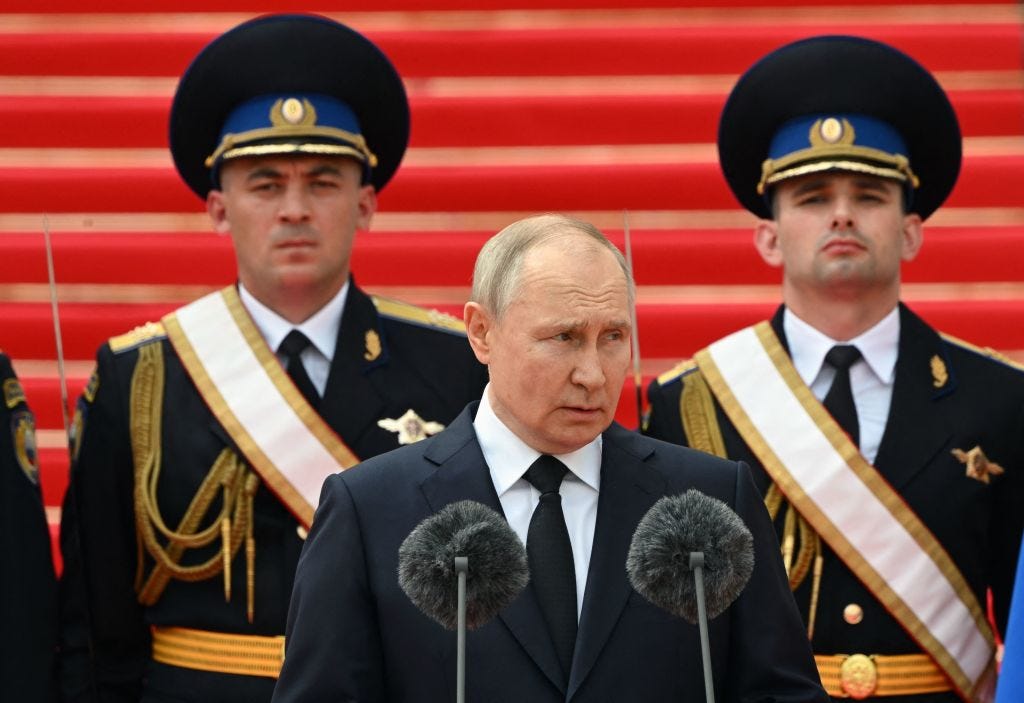
What does all this mean for Putin? For Russia?
If you only have time to read one article, this is it. Foreign Affairs’ executive editor Justin Vogt spoke with Steven Kotkin—senior fellow at Stanford’s Hoover Institution and the author of a three-part biography on Stalin—for an informative interview that clarifies the “putsch” for non-experts. Kotkin is at his best when speaking on Prigozhin’s appeal as a Putin alternative, what steps Putin should (and shouldn’t) take to regain stability, and his sharp historical analysis of what threat this really poses to Putin.
For another informative piece, The Beginning of the End for Putin? from Foreign Affairs says it all in the title.
What comes next?
Looking forward, the first question many of us have is: what happens to the war in Ukraine? The less obvious question is: what happens with the Wagner Group’s presence in Africa? Bloomberg’s Simon Marks and Stephanie Baker answer this question in What Wagner’s Mutiny Means for Its Sprawling Business Empire. Wagner’s mercenaries prepared to fight in Ukraine through their activities—mass atrocities and accusations of war crimes—in Africa. Marks and Baker also lay out the possibilities for what comes next for the group’s business empire in Africa, which has assets ranging from a brewery to the Central African Republic’s largest gold mine.
Okay, so who are the winners? And who are the losers?
One surprise of the past weekend is the emergence of Lukashenko as a mediator between Putin and Prigozhin. There are reports that Prigozhin and Lukashenko are old friends, making Lukashenko’s role all the more interesting. Belarus—an often-ignored Eastern European country and the site of recent pro-democracy protests after Lukashenko “won” another election—is the focus of this article by New York Times writer Valerie Hopkins. Hopkins delves into what the events of the past few days mean for a country led by “the Kremlin’s docile satrap.”
Many of us are unsure whether Prigozhin won or lost. We were shocked to wake up on Saturday with a resolution to what appeared to be an existential threat to Russia’s existence on Friday night. At The Free Press, we wondered why Putin would appear to do a deal with Prigozhin, while simultaneously calling him a traitor. In his article Why Prigozhin Blinked, Trevor Filseth answers these questions for The National Interest.
China is “Russia’s friendly neighbor,” according to a Chinese press conference on Monday. But we can’t help but wonder what this unrest signals for a China that has been eyeing Taiwan. In a post titled Did Prigozhin Just Save Taiwan? Elliot Abrams makes the case that recent events in Russia may prove a cautionary tale for Xi.
How does all of this affect U.S. policy?
President Biden said Monday it’s “too early” to say how U.S. policy vis-à-vis the ongoing war in Ukraine will change, if at all, in the wake of whatever just went down in Russia. It may be that many things are happening, and we just don’t know. (“Good foreign policy is often invisible,” the political scientists James Goldgeier and Elizabeth N. Saunders have noted.) But it can’t be a total coincidence that the Pentagon announced Tuesday it’s sending another $500 million in Stinger and Patriot air-defense missiles, among other weapons, to Kyiv. The Russian war effort just sustained a body blow; the hawks in Washington see an opening that didn’t exist just last week. On top of that, the Ukrainians appear to be pushing on with their counteroffensive.
Who could’ve predicted all of this?
Machiavelli, who Leo Strauss went so far as to call the founder of modern political philosophy. Here’s Machiavelli: “The mercenary captains are either capable men or they are not; if they are, you cannot trust them, because they always aspire to their own greatness, either by oppressing you, who are their master, or others contrary to your intentions; but if the captain is not skillful, you are ruined in the usual way.”
For a 500-year-old guide as to why Wagner is perhaps doomed to fail, check out Chapter XII of The Prince. If you want a hard copy, we like Penguin Classics’ translation.

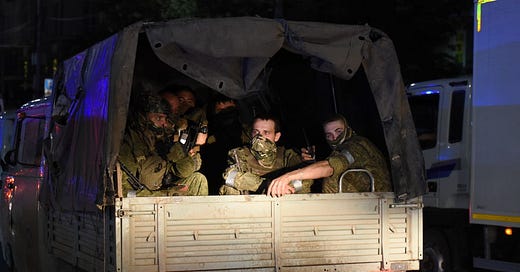






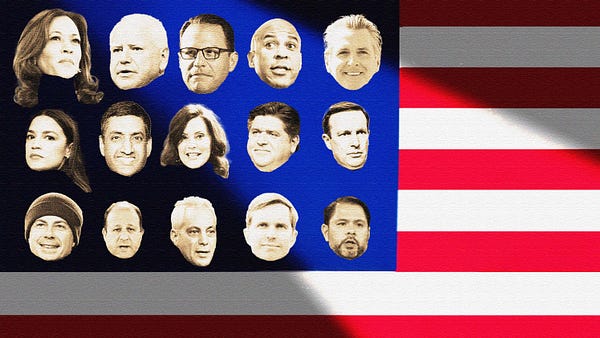



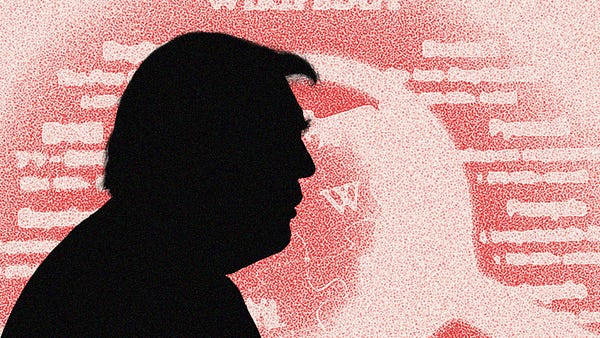

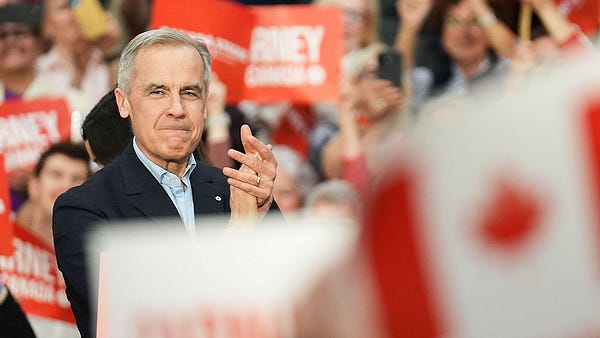

I am not usually current in my readings. But articles/essays I've appreciated are as folloiws:
The Ukrainian Tragedy, Amercan Mind web site, 6/28/23
Have We Foregotten the Russian Way of War? by VDH, American Greatness web site, 7/16/23
Hopefully, you will be able to access the comments section to American Greatness. A very sharp poster opened a discussion on this essay, and received some very canny replies from people who had at least some past experience in Russia. Very interesting. You should be able to find the comments under AG+. Open Comment Section for VDH's - Have We Forgotren the Russian Way of War?
It's been over two weeks since this essay was published. I see that your request for readers to post articles and opinions they've found pertinent has gone unheeded. We are apparently way too interested in pursuing our own theories. Frankly, I doubt I've read anything as deep as the articles you've cited. Thank you for the well-thought out analysis of the total confusion of what is happening inside Russia. Has anyone ever been able to answer that question!